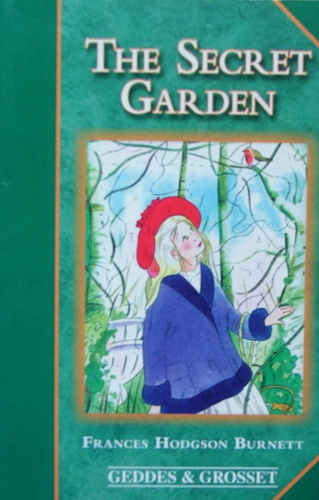 Jane Austen
Jane Austen First published in 1813
Trade paperback edition published by Barnes & Noble
Books in 2004
Books in 2004
392 pages
Jane Austen’s love story would not be nearly delicious had it not served us a plate of tasty appetizers that consists of ill-formed first impressions, prejudice and misunderstanding, all of which have caused our heroine, strong-minded Elizabeth Bennet, take a disliking of our hero, prideful and principled Mr. Darcy, right from the start. Not to mention that the ladies’ gossip did not help either.
Elizabeth is as lovable as any Austen’s heroines, and just like the other heroines, Elizabeth is not without flaws. She is very perceptive but sometimes has too much confidence in her ability to read people. When she overhears Darcy criticize her look as “only tolerable, but not handsome enough to tempt (him)”, she easily becomes irritated and quickly decides Darcy’s character at face value, without prudently finding out his real strength. When comforting Elizabeth, we find her mild-tempered sister Jane says:
“We must not be so ready to fancy ourselves intentionally injured. We must not expect a lively young man to be always so guarded and circumspect. It is very often nothing but our own vanity that deceives us. Women fancy admiration means more than it does”.
But Elizabeth is too romantic and too stubborn to be sensible, thus began a story of emotional growth. For Elizabeth and Darcy, pride and prejudice are not flaws but character traits that require minor adjustments, and before long the couple comes to recognize each other’s merits and live happily ever after. Now you may wonder, why are pride and prejudice are not condemned as unacceptable qualities in the Austen’s day? That is because the gentry society considers pride not as arrogance but as a manner worthy of one’s rank in social status. They also see prejudice as a quality of discrimination that is helpful in preserving the order and stability of aristocratic class. New ideas and progressive thinking, which could cause disarray of the upper-class, are quickly fended off by this sense of prejudice.
The union of Elizabeth and Darcy could not have been more what the readers ask for. Not only is that Elizabeth and Darcy admire each other dearly, but Darcy is also an incredibly wealthy man! In an age when friendship, economic motive and family ties and religious duty are all more acceptable incentive for marriage than romance, Elizabeth and Darcy’s relationship is as perfect as a fairytale!
It is interesting that Jane Austen, the woman who wrote about many happy-endings, remained single her whole life. It is said that she once accepted a proposal from a wealthy man, only to turn it down the next day, reason being that she felt that she didn’t love the man enough to marry him. This action is just as shocking as when Elizabeth refuses Darcy’s marriage proposal. The motives behind these two refusals are very much alike, since neither Jane Austen nor Elizabeth Bennet sees marriage as a mercenary pursuit. It seems like that Austen has written herself into the story. I often wonder whether she used this story, as well as many others, to compensate the loneliness in her non-existent romantic life, but I would very much like to wrong than to accuse Jane Austen to be a lonesome and fragile spinster. Austen chose her to live her life the way she preferred, with a strong sense of self and faith for romance, two virtues as timeless as fairytales, certainly still need to be preached to young women in modern days. In a letter to her niece Fanny Knight, Austen wrote:
“Do not be in a hurry; depend upon it, the right Man will come at last….”


